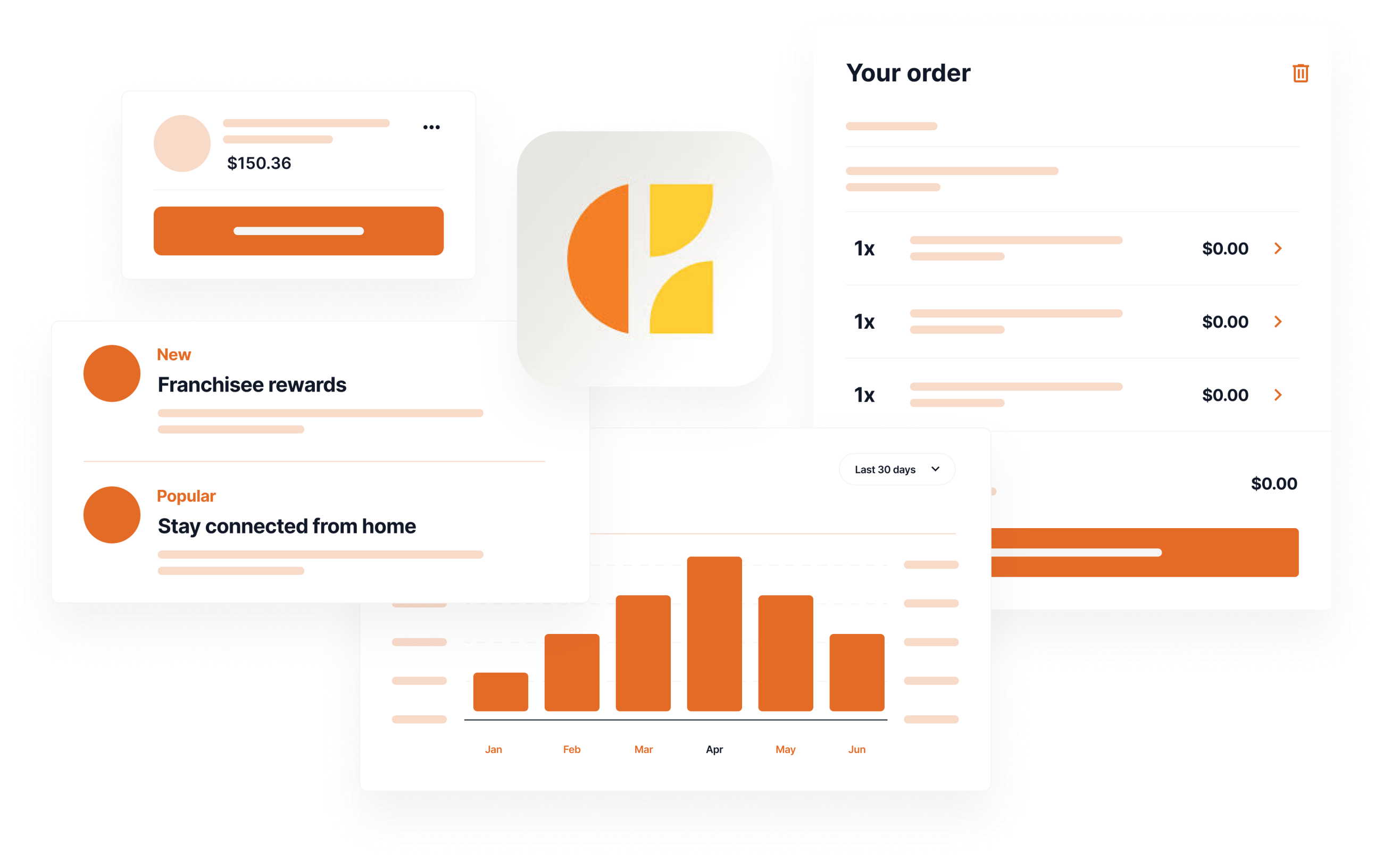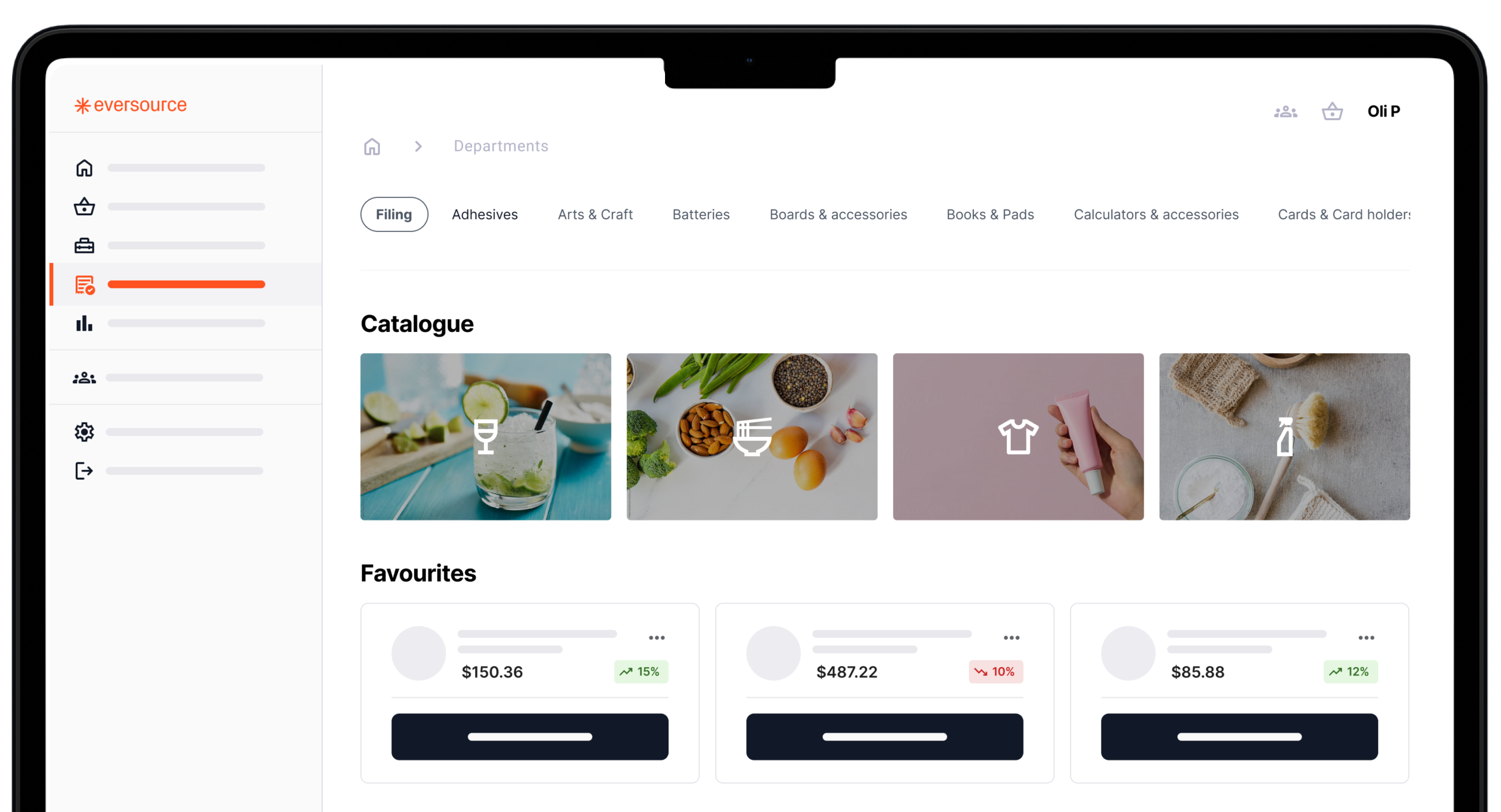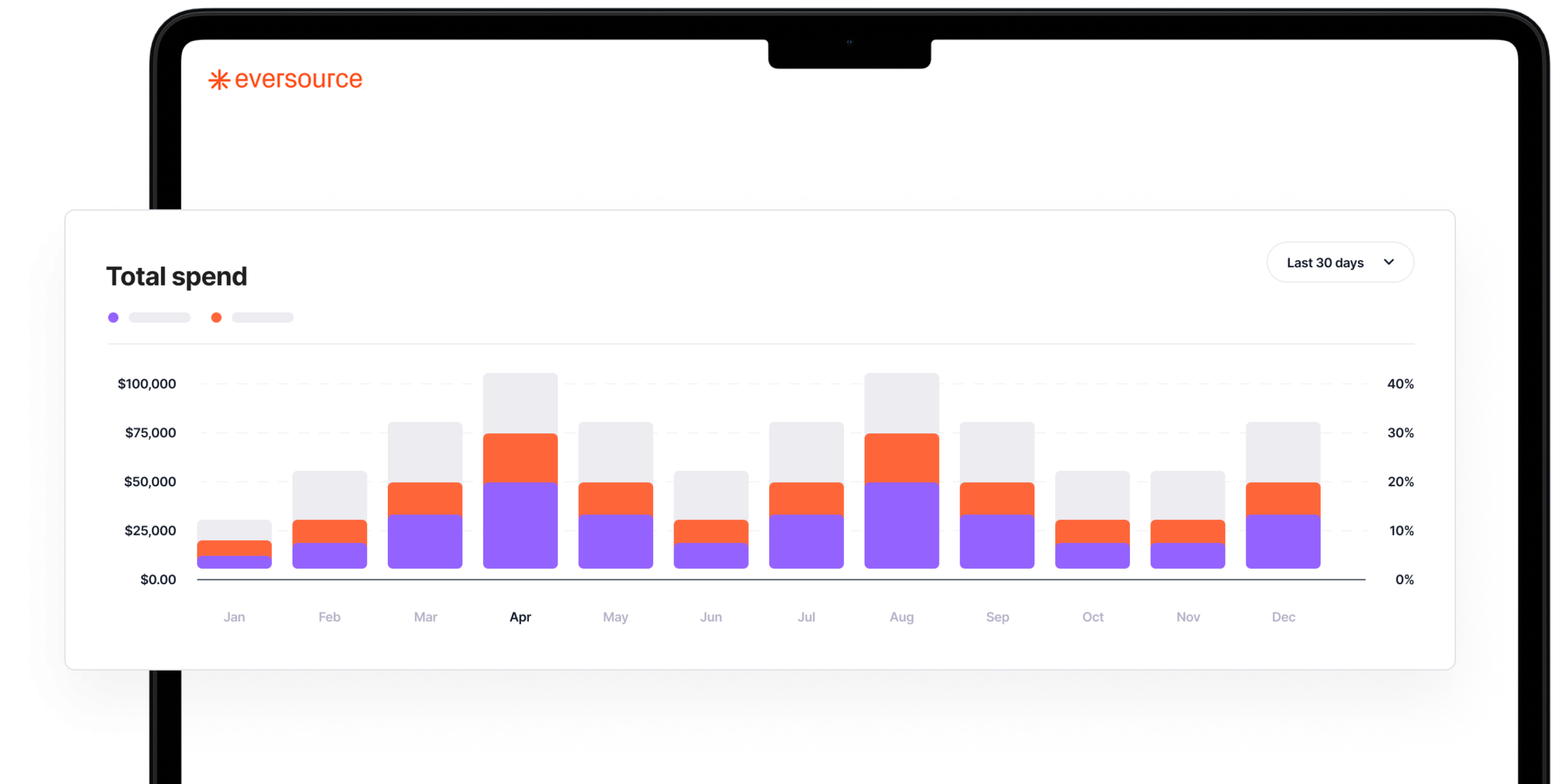For decades, procurement and operations teams have operated in a frustrating paradox: while they're responsible for managing supplier relationships and controlling spend, they don't own the most valuable asset generated from these activities – the data.
Think about it. Your procurement team places thousands of orders annually, manages complex supplier relationships, and processes countless invoices. Yet most of this critical business intelligence sits fragmented across supplier portals, email threads, and spreadsheets that your organisation doesn't control. At best, they can see the invoice analysis within creditors. It's like being the coach of a sports team but getting your game stats from the opposing team's scoreboard – you're making strategic decisions based on someone else's version of how you're performing.
Poor data quality costs organizations an average of $12.9 million annually, according to Gartner research, Gartner while IDC estimates that fragmented data can cost companies up to 30% of annual revenue. Forrester research shows employees spend 30% of their time (12 hours weekly) searching for information in fragmented systems.
The value of what you are missing out on is about to be multiplied, with the advantages that AI brings. Having your own data, in a secure environment that only you can use, is more important than ever before.
Procurement Data Lives Everywhere Except Where You Need It
Traditional procurement operates in silos. Teams log into multiple supplier websites, download invoices from email attachments, and track orders through a patchwork of systems and self-managed spreadsheets. Each supplier owns the interaction data from their portal. Your ERP system captures the final financial transactions, but misses the rich context around product selection, supplier performance, and buyer behaviour.
This fragmentation creates several painful realities:
Limited insights: You can't analyse supplier performance across your entire network
Compliance blindness: No real-time view of whether teams are using preferred suppliers or products
Negotiation weakness: Lack of consolidated spend data reduces your bargaining power
Missed savings: No way to demonstrate volume price-breaks or claim rebates
Operational inefficiency: Teams waste hours reconciling data across systems
The result? Procurement managers are reduced to educated guessing rather than data-driven decision making.
We see this challenge across various industries within medium sized organisations, lacking in modern technical solutions, and with any multi-site organisation or groups of businesses aiming to work together.
Hotels and Restaurant Groups often see this, with high consumable spend and complex supplier purchasing.
Department buyers spend 2-3 hours each morning logging into different supplier portals, one for fresh produce, another for wines, a third for specialty ingredients, plus separate systems for cleaning supplies and amenities. A typical week generates 100s of invoices across all properties, with individual invoices less than $10 for specialty breads or local craft beer tastings. The accounts team processes over 400 invoices monthly, manually matching purchase orders, delivery receipts, and supplier invoices across multiple spreadsheets. Or not even bothering to match!
Head Office has no real-time visibility into what each property is ordering or whether they're using preferred suppliers. A specific branch might pay $8.50 per bottle for the same wine that another sources for $6.20, but this discrepancy is never highlighted to Head Office or buyers. Staff turnover means new buyers learn 15+ different supplier login systems, while the finance team regularly chases missing delivery confirmations that got lost in email threads.

The Shift Toward First-Party Data Ownership
Forward-thinking organisations are recognising that procurement data should be treated as a strategic asset, not a byproduct. This shift mirrors what happened in marketing over the past decade, where companies moved from relying on third-party cookies to building direct customer relationships.
Today's successful brands own comprehensive customer profiles: purchase history, engagement patterns, preferences, and behavior data flowing directly into their CRM systems. They're not asking Facebook for permission to understand their customers—they have direct relationships and data ownership.
Sales teams followed suit, moving away from purchased lead lists toward owned CRM systems that track every customer interaction, deal progression, and relationship touchpoint. Finance departments don't rely on banks to tell them their cash position—they maintain real-time visibility through integrated accounting systems. HR teams build internal talent databases rather than depending solely on LinkedIn for workforce insights.
First-party procurement data ownership means your organisation directly collects, stores, and controls all transaction data from supplier interactions. Instead of data living in supplier silos and manually updated spreadsheets, everything flows through systems you control – from initial contract, catalogue management, buying to final invoice reconciliation.
This isn't just about technology; it's about fundamentally rethinking who should own the commercial relationship data in B2B transactions.
Why This Actually Works
When procurement teams own their first-party data, several powerful capabilities emerge:
Real-time spend visibility: Instead of waiting for month-end reports, procurement managers can see spending patterns as they happen. This enables proactive budget management and immediate course corrections.
Supplier performance analytics: With transaction data centralised, you can analyse supplier reliability, pricing trends, and service quality across your entire network. This transforms supplier reviews from subjective assessments to data-driven evaluations.
Enhanced negotiation power: Consolidated spend data across all suppliers provides compelling leverage in contract negotiations. Suppliers can't dispute your volume when you have complete transaction records.
Compliance monitoring: Real-time visibility into purchasing behaviour allows for immediate intervention when teams stray from preferred suppliers or approved products.
Predictive insights: Historical patterns enable better demand forecasting and inventory planning, reducing both stockouts and overordering.
The Implementation Challenge (It's Easier Than You Think)
Modern technology has eliminated most traditional barriers to first-party data ownership. While organisations still worry about supplier resistance and integration complexity, these concerns are largely outdated.
Key technological advances:
Rapid supplier integration - standardised APIs import virtually all suppliers in days, not months
AI-powered automation - automatic product categorisation, naming standardisation, and inventory management
Intelligent order management - automated approval workflows, invoice matching, and anomaly detection
Predictive capabilities - AI learns patterns and predicts ordering needs based on historical data
Why suppliers now cooperate:
Seamless integration increases their sales by reducing buyer friction
Organisations with consolidated data become better customers - more predictable orders, faster payments, stronger partnerships
Improved reach with forced buying compliance across a network
The result is solutions that benefit everyone: buyers get better data and experience, suppliers get streamlined sales processes, and procurement gains strategic insights.

The AI Multiplication Effect
Perhaps the most compelling reason to prioritise first-party data ownership is artificial intelligence. AI systems are only as good as the data they're trained on, and procurement AI requires comprehensive, high-quality datasets to deliver meaningful insights.
Organisations with first-party procurement data can leverage AI for:
Automated invoice processing that learns from your specific supplier patterns
Predictive ordering based on your historical demand cycles
Anomaly detection tuned to your organisation's spending behaviours
Contract analysis that understands your preferred terms and compliance requirements
The companies successfully implementing AI in procurement aren't necessarily the largest – they're the ones with their datasets in order.
Privacy and Security Considerations
First-party data ownership also addresses growing privacy and security concerns. When transaction data flows through multiple third-party systems, organisations lose control over where sensitive information is stored and who has access.
Modern procurement platforms enable AI processing within customer-controlled cloud environments, ensuring sensitive supplier and pricing information never leaves the organisation's security perimeter. This approach allows companies to gain AI insights while maintaining complete data control.
This is particularly crucial for organisations in regulated industries or those handling sensitive commercial information. Your procurement data stays yours, processed by AI models running in your own infrastructure.
Looking into the future
The procurement teams that will thrive in the next decade are those treating data as their most valuable asset. This means moving beyond fragmented, supplier-controlled systems toward integrated platforms that centralise all procurement intelligence.
The technology exists today to make this transition seamless for buyers, suppliers, and procurement teams. The question isn't whether first-party data ownership will become the standard – it's how quickly organisations will make the transition.
For procurement leaders, the choice is clear: continue operating with partial visibility and borrowed data, or take control of your organisation's procurement intelligence. In an era where data drives competitive advantage, that choice will define which organisations lead and which ones lag behind.
The data revolution in procurement has begun. The question is: will you own your data, or will your data own you?


